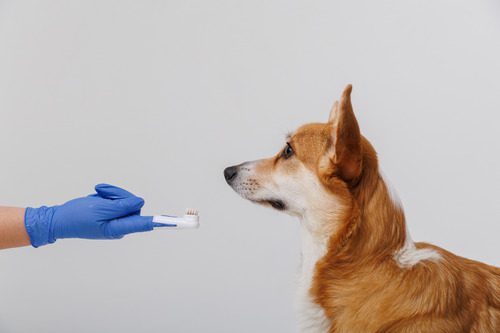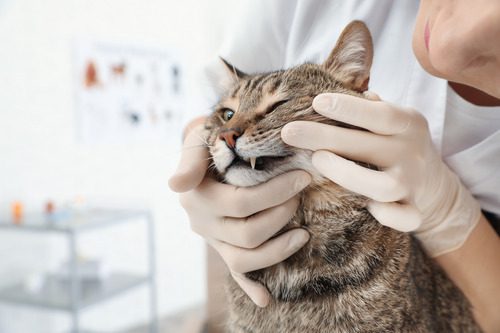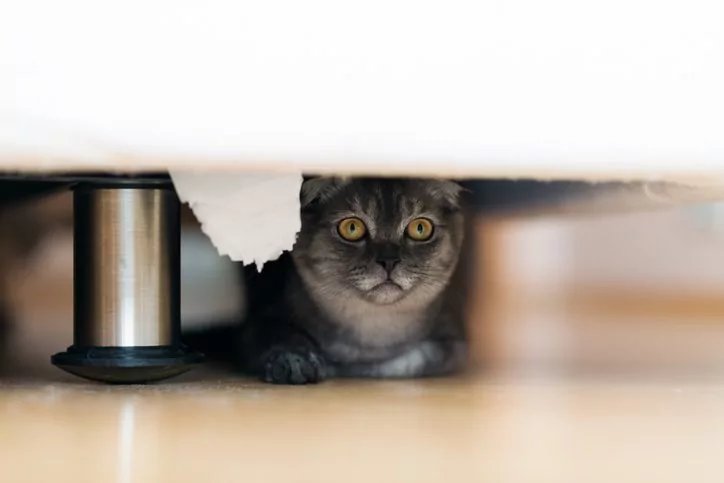What You Need to Know About Pet Separation Anxiety in Raleigh, NC
Pet separation anxiety can be a fairly serious condition, especially if you have a dog that barks or howls all day when you are not at home. However, this is a more common condition in pets than some people may think, and this is not even considering that most of our pets are used to having us around all of the time as a result of the COVID 19 pandemic.
It is important to be able to recognize the signs of separation anxiety in our pets. This is because this condition can cause some serious problems for both you and your neighbors in Raleigh, NC. This can include things like excessive barking, destructive behaviors like excessive chewing, and even attempting to escape when left in a confined area.
In this article we will be explaining everything that pet owners need to know about separation anxiety including the signs of separation anxiety and what you should do if your pet has it. In addition, we will also be answering some other commonly asked questions about separation anxiety in pets. Let’s jump right into it!
What Is Separation Anxiety for Pets?
Separation anxiety occurs when our loved ones experience anxiety when they are separated from certain people. Although separation anxiety can occur in people, it is much more common for pets to experience this problem.
There are many different potential causes for separation anxiety in our pets including moving to a new place and having a change of people that live with you.
What Are The Signs of Separation Anxiety in Dogs?
Separation anxiety is a more common condition in dogs than it is in cats, and more dogs have separation anxiety than some may think. Separation anxiety can range in severity as well. Some dogs may only have a mild case of separation anxiety that is fairly manageable, while others may have a more severe form that requires professional assistance.
Here are some of the signs of separation anxiety in dogs.
- Excessive vocalizations (usually in the form of barking, howling, or whining)
- Destructive behaviors like excessive chewing and digging
- Having accidents inside (and sometimes eating it)
- Obsessive behaviors like pacing
- Attempting to escape a confined area
Can Cats Have Separation Anxiety? What Are The Signs of Separation Anxiety in Cats?
Yes, cats can also have separation anxiety. However, it is fairly less common for cats to have this condition than it is for dogs to have it. Like dogs, cats can develop separation anxiety for a variety of reasons including changing their environment or routine.
The signs of separation anxiety in cats are fairly similar to the signs of separation anxiety in dogs. Some signs of separation anxiety in cats include but may not be limited to:
- Having accidents outside of their litter box
- Excessive meowing, yowling, or crying
- Attempting to escape a confined area
- Destructive behaviors such as excessive chewing or scratching
- Grooming themselves excessively
What Should You Do About Separation Anxiety in Your Pet?
The course of action that you should take for your pet’s separation anxiety depends entirely on how severe it is. Here we will be breaking down what you should do about your dog or cat’s separation anxiety depending on whether it is a mild, moderate, or severe case.
Mild Separation Anxiety
Mild separation anxiety can be a bit bothersome for pet owners, but it isn’t severe enough to necessarily warrant giving your dog anti-anxiety medication for it.
In fact, giving your dog some comfort items and making your comings and goings less of a big deal can do wonders in reducing your dog or cat’s separation anxiety.
Of course, you should always rule out other health issues before assuming that your dog’s symptoms are caused by separation anxiety. Sometimes signs like sudden accidents can also be a sign of various medical conditions such as urinary tract infections.
In addition, doing things like giving your dog enough exercise and mental stimulation can reduce boredom, which can also sometimes be misinterpreted as separation anxiety as well.
Moderate Separation Anxiety
Moderate separation anxiety may require a bit of training for it to get better. Doing a training exercise called counter conditioning can sometimes work to reduce separation anxiety in both dogs and cats.
Here are a few simple steps for counter conditioning training to combat separation anxiety:
Step 1: Give your dog something to do when you are gone. This could be a food stuffed toy or a toy that is safe for them to play with unsupervised. This will give them something to take their mind off of you leaving. It may also help to give them some calming objects as well such as their favorite blanket or dog bed.
Step 2: Start counter conditioning off slowly. Only leave the room for a few minutes at a time to start and slowly build up your distance and time duration away from them over time.
Step 3: Make it a routine whenever you have to leave the house. If the training doesn’t seem to be working, take your dog to the vet to make sure that there are no other problems going on. In addition, you may also want to get some help from a professional dog trainer that has experience with working with dogs that have separation anxiety. The same goes for cats as well, but you will be seeing a cat trainer or behaviorist.
Severe Separation Anxiety
Severe separation anxiety can be very difficult to deal with, especially if you have a dog that is bothering your neighborhood with their excessive barking. Severe separation anxiety in both dogs and cats may require medication, and it is also recommended that you talk to your veterinarian before hiring a professional trainer or attempting any training yourself.
When to See a Vet About Your Pet’s Separation Anxiety in Raleigh, NC
If your dog or cat is showing any signs of separation anxiety, regardless of the severity, then you should always take them to the vet before treating it.
This is because medical conditions that require veterinary treatment can sometimes mimic the signs of separation anxiety. Your veterinarian can help determine if your pet is in fact experiencing separation anxiety or may have an underlying medical condition that requires treatment. This determination will allow for a better quality of life for both you and your four-legged friend
At Bowman Animal Hospital and Cat Clinic, we’re here to help make you and your pets’ lives easier. Our veterinarians are more than willing to help you work through your pet’s separation anxiety in Raleigh to get your cat or dog back to feeling safe and comfortable again.
Recent Posts
Dental Cleaning for Dogs: Why It’s Important
Dental Cleaning for Dogs: Why It’s Important When was the last time you checked your dog’s teeth?…
Cat Gingivitis: Symptoms, Causes, and Treatment
Cat Gingivitis: Symptoms, Causes, and Treatment Your cat’s mouth plays a crucial role in their overall health,…
Managing Cat and Dog Anxiety During the Holidays
Managing Cat and Dog Anxiety During the Holidays Let’s face it: our pets are part of our…
Managing and Treating Joint Pain in Senior Pets
Managing and Treating Joint Pain in Senior Pets November is Senior Pet Month, and it’s the purr-fect…
Dog Flu: Recognizing Canine Influenza Symptoms and Care Tips
Dog Flu: Recognizing Canine Influenza Symptoms and Care Tips We know you consider your furry family members…
About Bowman Animal Hospital & Cat Clinic
Established in 1986 by Dr. Gale Bowman, Bowman Animal Hospital and Cat Clinic is dedicated solely to the health and well-being of our pet community. We are a team of compassionate veterinarians and pet lovers who invest our time and resources into providing the very best medical care to your pet.







